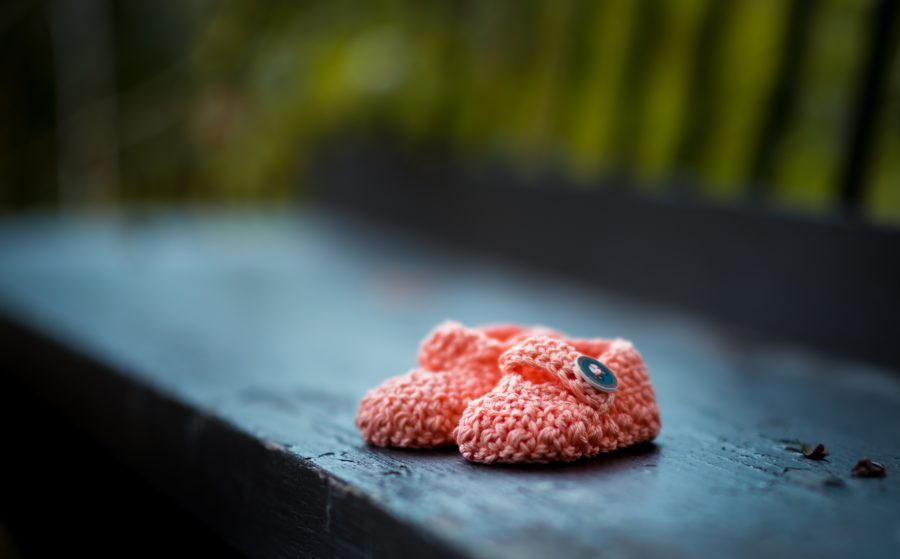New research from Deakin University explores how donor-conceived adults learn about their status – and what they do next.
Donor-conceived children were once Australia’s hidden population.
Prior to the year 2000, parents were encouraged to withhold this information from their children. Now grown into adults, they’re finding out about their conception status. And for many, the fact that this secret has been kept with them for many years is difficult to come to terms with.
Disclosure attitudes have changed significantly since then. It’s now considered best to tell children if they’re donor-conceived early in life, so they can incorporate it into their identity as they grow up.
But this is only a recent social shift, and the majority of donor-conceived adults across the country don’t know about their status. New research from Deakin University explores how they discover this information, and what leads them to contact their donor parent.
Why did participants contact their donor parent?
Caitlin Macmillan, an academic within Deakin University’s Faculty of Health, wanted to find out how donor-conceived adults learned about their status – and what they did next.
Her study, ‘The motivations of donor-conceived adults for seeking information about, and contact with, sperm donors’, explores exactly what it says on the tin.
Bringing together the largest sample size of donor-conceived adults in Australia, she asked them; why did you choose to source information about your donor, and why did you contact your donor parent? Why?
According to her research, most participants chose to learn about their donor parent as a way of expanding their identity, or simply because they were curious about the person that helped to conceive them.
They wanted to know some basic details – how tall they were, the colour of their eyes, if they played an instrument or shared a love of literature – as well as information about their medical histories.
Some were more comfortable contacting the donor parent directly for this information. But Ms Macmillan notes that some donor-conceived people who contact their donors are criticised in the media or online for doing so.
“It’s more socially acceptable to want access to your correct medical history,” she says.
“Wanting to meet and establish a relationship with a formerly anonymous donor can be met with backlash. As such, it’s less commonly reported, but based on this recent publication it’s not an uncommon experience – at least among the donor-conceived people aware of who participated in their conception.
Unexpected findings
One of the more surprising findings to come out of this research involves how participants discovered they were donor-conceived.
Most participants found out through their parents – but under difficult circumstances, such as during an argument or while their parents were going through a divorce.
“Less than 50% of people reported a completely neutral experience when finding out about their donor-conception status,” Ms Macmillan says. “This result really surprised me.”
Another unexpected finding was that some participants discovered their status independent of their parents. This may have been through a sibling who had pieced this information together, or someone outside the immediate family unit revealing the truth.
Others came across records relating to their conception completely by accident, as they’d been left amongst other family records. And some were contacted directly by their donor parent.
“I think there’s this idea that parents are in charge of disclosure, but they don’t always have that control,” Ms Macmillan says.
“Sometimes there’s a mutual, learned secrecy, where the parents aren’t saying anything, and the child isn’t letting on that they know.”
Ms Macmillan wondered how that experience might affect the relationship between a child and their parents, a question she is now answering through her PhD.
Supporting them is our duty
In Victoria, donor parents have the right to request access to information about their offspring, and there are support systems, like the Victorian Assisted Reproductive Treatment Authority, in place to help them do so.
On the other end of this relationship, Victoria’s donor-conceived people have the right to information about their donor parent once they turn 18. This includes identifying information, such as the donor’s name and contact details, as well as non-identifying information, like their medical history and physical features.
But as Ms Macmillan points out, not all states treat this issue equally.
“Health policy is state-based, as is fertility treatment, so the experience of donor-conceived adults can vary between states,” she says.
“If you live in Queensland, it’s hard to get any information. If you have the name of the clinic they attended, they might share basic details, but this is generally only blood group, complexion and eye colour.”
Further problems can arise when the donor’s gametes are moved to another state, meaning the child conceived from them can be bound by laws from the donor’s original state.
To remedy this, Ms Macmillan wants national legislation that treats all donor-conceived people equally.
She also hopes that her research will be applied to clinical practice. Donor-conception is becoming increasingly prevalent, and with mental health also being a rising issue for the Australian population, she says it’s our duty to ensure that donor-conceived children receive the support they need.
Caitlin Macmillan is a casual academic within Deakin University’s Faculty of Health.




